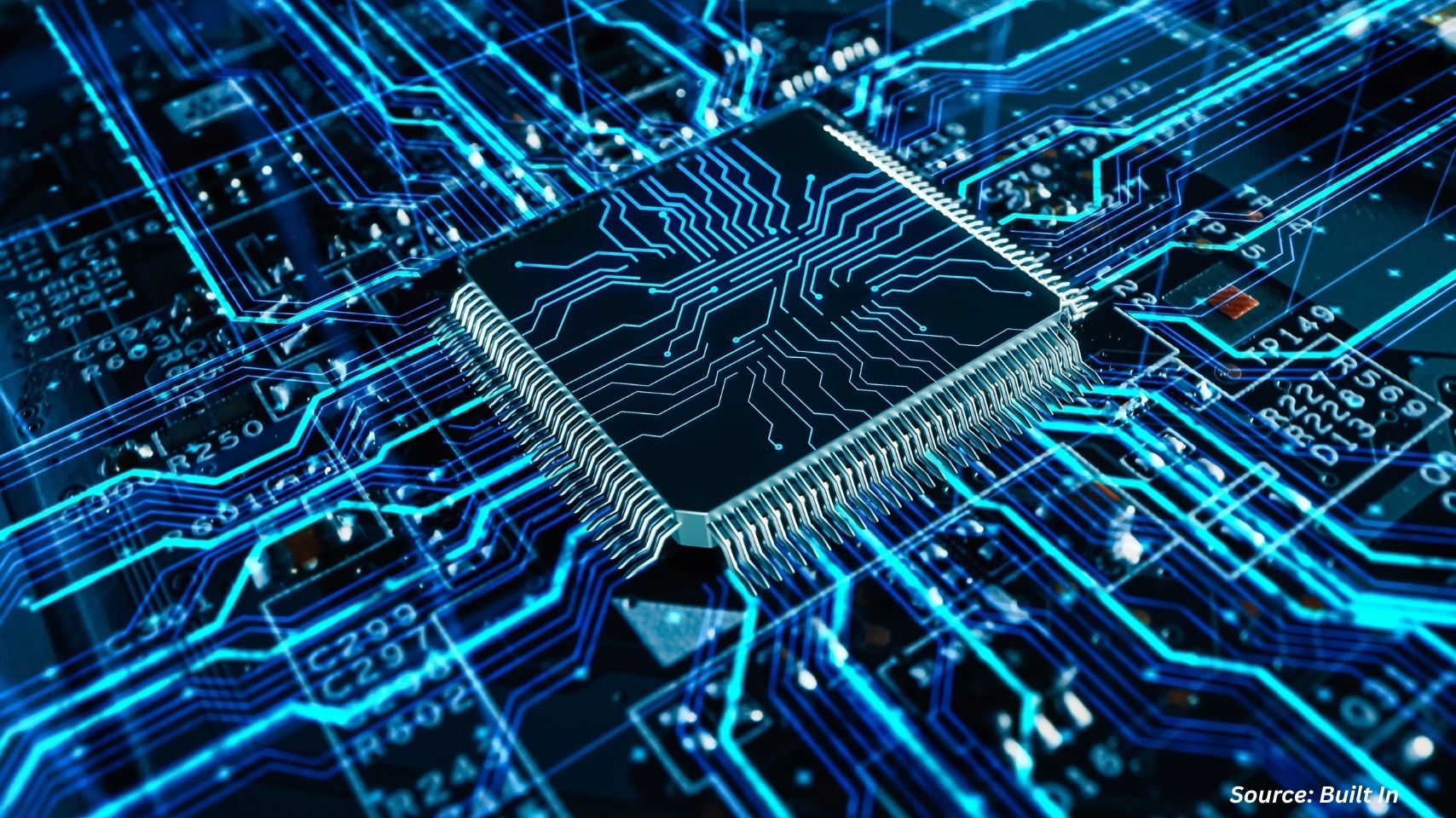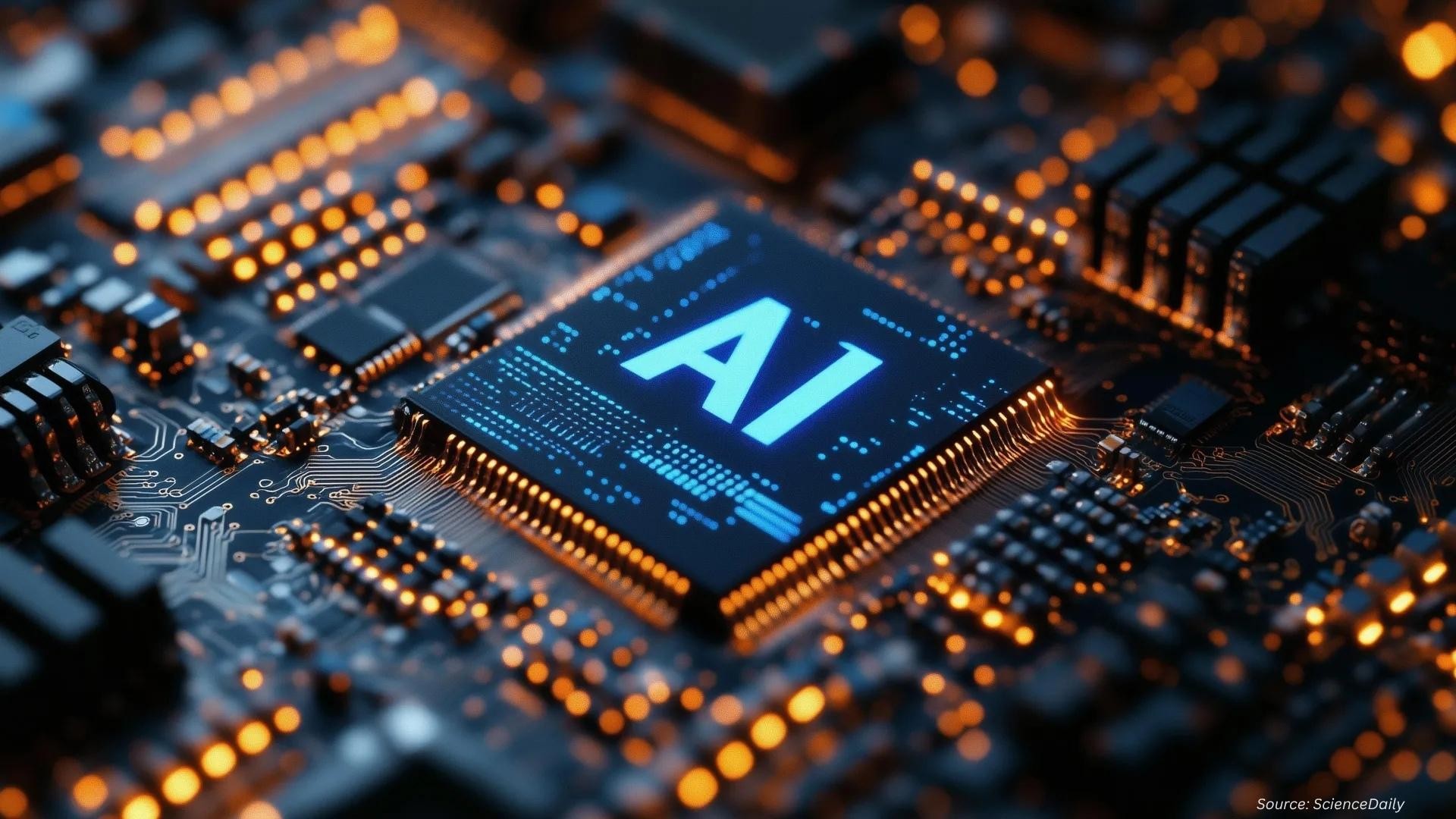How Cutting-Edge Innovations are Driving AI Chip Evolution
Published: 2025-09-11

In the fast-paced landscape of Artificial Intelligence (AI) the development of hardware has been just as much of a game-changer as breakthroughs in algorithms. The core of the AI revolution is the AI chip industry which still has a lot of innovation yet to surface. AI chips, specialized processors built to speed up AI tasks are crucial in making things such as facial recognition on smartphones or complex data analysis in autonomous vehicles and cloud computing possible.
This article dives into the capability of AI chips and takes a deep dive into the various companies that are making advancements in developing the best chips on the market in today's rapidly evolving environment.
As per the latest report published by the NMSC, the global market for AI chip reached at USD 52.92 billion in 2024 and is expected to hit USD 295.56 billion by 2030, with a significant CAGR of 33.2% from 2025-2030. Recent years have witnessed a surge in cutting-edge technologies integrated into AI chips, marking significant strides in performance, efficiency, and versatility.
Curious About the XYZ Market? Request a free sample
Key Advancements include:
Neuromorphic Computing: Inspired by the human brain, neuromorphic chips mimic neural networks' parallel processing capabilities. These chips excel in tasks requiring low power consumption and rapid decision-making, making them ideal for edge computing applications. As an example, Intel announced the development of the world's largest neuromorphic computer, named "Hala Point," designed to mimic the human brain and advance artificial intelligence (AI) research.
Hala Point employs spiking neural networks (SNNs) similar to the human brain, enabling parallel processing and spike outputs following calculations. Hala Point will be utilized by researchers to address challenges in device physics, computing architecture, and computer science, paving the way for future commercially deployable neuromorphic computers.
Quantum Computing: While still in its infancy, quantum processors hold immense promise for AI tasks that demand unprecedented computational power. Quantum AI chips are poised to revolutionize fields like cryptography, optimization problems, and complex simulations. In May 2024, Researchers from the Universities of Melbourne and Manchester developed a groundbreaking technique for manufacturing ultra-pure silicon, bringing the realization of powerful quantum computers closer to reality.
By employing a focused, high-speed beam of pure silicon-28 to replace silicon-29 atoms in a silicon chip, the researchers effectively created a crucial component needed to construct a silicon-based quantum computer. The potential impact of this research is significant, as it opens the path to reliable quantum computers that promise advancements across various sectors, including artificial intelligence (AI), secure data and communications, vaccine and drug design, and energy use, logistics, and manufacturing.
Graphcore's Intelligence Processing Units (IPUs): Designed specifically for AI workloads, IPUs excel in processing highly interconnected data structures like graphs. They are optimized for tasks such as natural language processing, recommendation systems, and real-time decision-making. For instance, Graphcore, a U.K.-based AI computer company, made a significant boost to its computers' performance by using TSMC's wafer-on-wafer 3D integration technology to attach a power-delivery chip to its AI processor.
The new combined chip, called Bow, can run faster and more efficiently, with up to 40% faster training of neural networks and 16% less energy consumption, without any changes to the software. This advancement in 3D chip stacking technology, where entire wafers are bonded together, allows Graphcore to overcome power delivery challenges and improve the performance of its specialized AI processors.
AI Accelerators: These specialized chips are tailored to accelerate specific AI tasks such as deep learning inference and training. Companies such as NVIDIA with their Tensor Cores and Google with its Tensor Processing Units (TPUs) are at the forefront of developing highly efficient AI accelerators. Recently, Intel announced to roll out a new version of its AI chip, called Gaudi 3, to challenge Nvidia's dominance in the fast-growing AI accelerator market.
The Gaudi 3 chip is designed to boost performance in training AI systems and running finished AI software, with claims of being faster and more power-efficient than Nvidia's H100 accelerator. However, Nvidia's lead in the market, with its recently announced Blackwell chip platform, makes it a formidable competitor for Intel to overcome.
Energy-Efficient AI Chips: As sustainability becomes a growing concern, there's a push towards developing AI chips that prioritize energy efficiency without compromising performance. These chips are crucial for extending battery life in mobile devices and reducing carbon footprints in data centers. Notably, Google unveiled its most advanced AI chip, Trillium, which boasts a 4.7X increase in peak compute performance and is 67% more energy-efficient than its previous generation.
The Trillium chip can scale up to 256 TPUs in a single pod and features specialized accelerators for processing large embeddings, enabling faster and more cost-effective training of foundation models. Google claims Trillium will power the next wave of AI models and agents, providing customers with advanced capabilities through its cloud computing platform.
In-memory Computing: AI chips incorporating in-memory computing techniques minimize data movement between storage and processors, thereby accelerating AI tasks such as pattern recognition and data retrieval. This approach significantly reduces latency and power consumption, making it ideal for edge computing scenarios.
For instance, Generative AI announced to unlock incredible business opportunities, traditional architectures such as CPUs, GPUs, and custom accelerators are slowed by the memory wall, where the energy required to move data between storage and processing is significantly higher than the actual computation. In-memory computing (IMC) has emerged as a promising solution, performing multiply-accumulate operations directly in memory to dramatically improve energy efficiency and throughput for AI inference.
Edge AI Processors: The edge AI processors are optimized for running AI algorithms locally on edge devices, reducing latency and bandwidth requirements by processing data closer to where it's generated. These processors are instrumental in applications requiring real-time insights and enhanced privacy, such as smart cities and healthcare monitoring. In April 2024, Intel announced a new lineup of edge-optimized processors aimed at industries including retail, manufacturing, and healthcare. The processors include FPGA chips from Altera, an Intel company, as well as Atom and Core CPUs and Arc discrete graphics, all designed to deliver powerful AI capabilities at the edge. These processors are integrated with Intel's OneAPI library and offer features like improved performance per watt, support for popular AI frameworks, and enhanced image classification inference performance.
Conclusion
In conclusion, The AI chip industry is at the forefront of technological innovation, driving advancements in artificial intelligence across various sectors. Recent developments in neuromorphic computing, quantum processors, specialized AI accelerators, and energy-efficient designs highlight significant strides in performance, efficiency, and versatility. These innovations promise to revolutionize fields from AI research to edge computing, setting new benchmarks in computational power and sustainability. As competition intensifies and collaboration accelerates, the future of AI chips holds immense promise for reshaping industries and ushering in a new era of intelligent computing solutions worldwide.
About the Author
 Sikha Haritwal is a researcher with more than 5 years of experience. She has been keeping a close eye on several industry verticals, including construction & manufacturing, personal care products, and consumer electronics. She has avid interest in writing news articles and hopes to use blog as a platform to share her knowledge with others. When she is not following industry updates and trends, she spends her time reading, writing poetry, cooking, and photography.
Sikha Haritwal is a researcher with more than 5 years of experience. She has been keeping a close eye on several industry verticals, including construction & manufacturing, personal care products, and consumer electronics. She has avid interest in writing news articles and hopes to use blog as a platform to share her knowledge with others. When she is not following industry updates and trends, she spends her time reading, writing poetry, cooking, and photography.
About the Reviewer
 Sanyukta Deb is a seasoned Content Writer and Team Leader in Digital Marketing, known for her expertise in crafting online visibility strategies and navigating the dynamic digital landscape. With a flair for developing data-driven campaigns and producing compelling, audience-focused content, she helps brands elevate their presence and deepen user engagement. Beyond her professional endeavors, Sanyukta finds inspiration in creative projects and design pursuits.
Sanyukta Deb is a seasoned Content Writer and Team Leader in Digital Marketing, known for her expertise in crafting online visibility strategies and navigating the dynamic digital landscape. With a flair for developing data-driven campaigns and producing compelling, audience-focused content, she helps brands elevate their presence and deepen user engagement. Beyond her professional endeavors, Sanyukta finds inspiration in creative projects and design pursuits.
















Add Comment